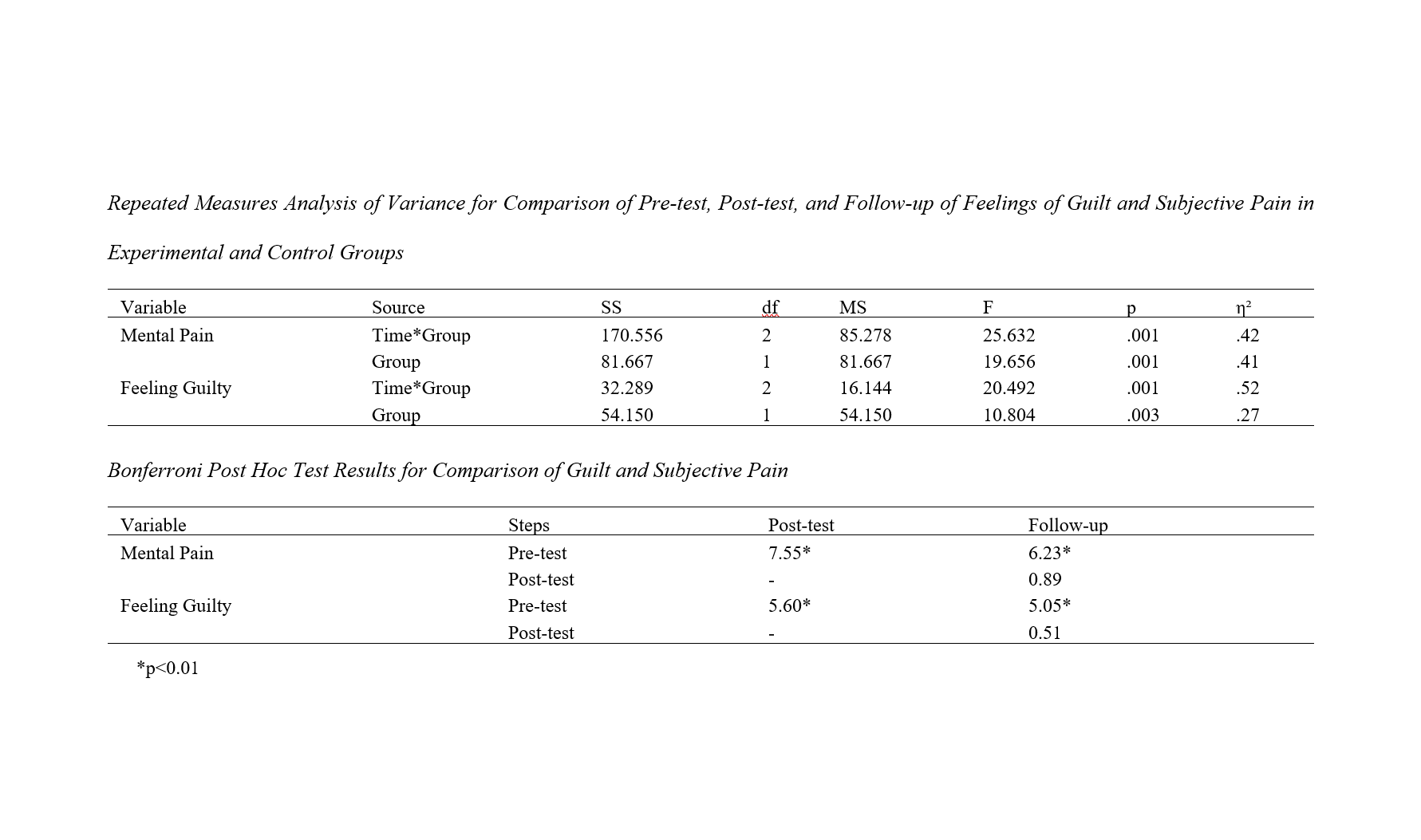The Effectiveness of Cognitive Hypnotherapy on Subjective Pain and Guilt in Individuals with a History of Suicide
Keywords:
Pain, Guilt, Cognition, HypnosisAbstract
Objective: Surveys conducted in the past two decades in Iran indicate an increase in suicide and attempted suicide rates. This study aimed to determine the effectiveness of cognitive hypnotherapy on subjective pain and guilt in individuals with a history of suicide attempts.
Methods and Materials: This quasi-experimental study employed a pre-test, post-test, and follow-up design with a control group. The statistical population comprised all individuals with a history of suicide attempts who visited the Nikandish psychiatric clinic in Sari during 2020-2021. A total of 30 patients were selected through convenience sampling and randomly assigned to either the experimental or control group. Data collection instruments included the Beck Depression Inventory (Beck, Steer, & Brown, 2001), Psychological Pain Assessment Questionnaire (Holden, Mehta, Cunningham, & McLeod, 2001), and Eysenck Guilt Questionnaire (Eysenck & Wilson, 1975). The experimental group underwent cognitive hypnotherapy in eight 90-minute sessions. Data were analyzed using repeated measures ANOVA via SPSS-21 software.
Findings: The findings revealed that cognitive hypnotherapy significantly reduced subjective pain (F=19.65, p<.001) and guilt (F=10.80, p<.001) in individuals with a history of suicide attempts.
Conclusion: Cognitive hypnotherapy is effective in alleviating mental pain and guilt among individuals with a history of suicide attempts. This therapeutic approach may be utilized to mitigate psychological issues in this population.
Downloads

Downloads
Additional Files
Published
Issue
Section
License
Copyright (c) 2024 Sara Valian, Hamzeh Akbari, Arastoo Mirani (Author)

This work is licensed under a Creative Commons Attribution-NonCommercial 4.0 International License.








